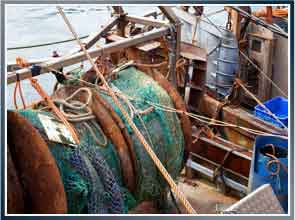What Makes a Vessel Unseaworthy?
 A vessel is a broad term that is not limited to a ship or a boat. A vessel can also include production platforms, offshore oil rigs, barges, moored casino boats or even helicopters. Unseaworthiness is any unsafe condition on a vessel that causes injury.
A vessel is a broad term that is not limited to a ship or a boat. A vessel can also include production platforms, offshore oil rigs, barges, moored casino boats or even helicopters. Unseaworthiness is any unsafe condition on a vessel that causes injury.
Ship owners and operators by law have a duty to ensure their vessels are seaworthy and provide safe working conditions for maritime workers.
That said, the following are some of the most common examples of what makes a vessel unseaworthy:
- Unsafe Equipment, Ropes and Tools
While the unseaworthiness doctrine applies to the vessel itself, it also applies to unsafe ropes, equipment, tools and improperly stored cargo.
- Lack of Proper Safety Equipment
When a vessel owner fails to provide proper safety equipment to workers, this also makes the vessel unseaworthy. Under federal law, both ship owners and offshore employers must give workers access to safety equipment they would need in the event of an emergency.
- Trip Hazards
While trip hazards are dangerous in almost every work environment, this is especially true while on board a ship. Ropes, tools, mooring anchors and other trip hazards can lead to slip-and-fall accidents or man overboard accidents.
- Poor Vessel Maintenance
This is what most commonly comes to mind when people hear the word “unseaworthy.” Poorly maintained engine, deck, hull, cargo equipment and living quarters can lead to maritime accidents.
- Inadequately Trained or Understaffed Crew
Needless to say, vessels can’t operate without a crew. Small crews or crews that are staffed by inexperienced or poorly trained seafarers can put everyone on board at risk. An incompetent captain can also be a reason to file a claim for unseaworthiness.
As maritime attorney David Anderson explains, a vessel owner or operator must provide a safe working environment. This also applies to a captain or crewmember who is operating the vessel while intoxicated. Latti & Anderson LLP is a maritime accident law firm that fights for those who have sustained injuries at sea.
